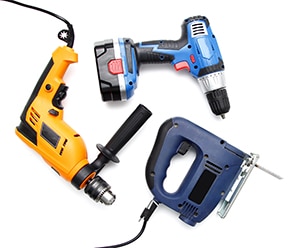
Lithium ion batteries (li-ion batteries) are the technology of choice for applications ranging from handheld electronics to “plug-and-drive” vehicles and back-up power systems for server farms and other critical systems. Their performance characteristics are the result of a very delicately balanced set of chemical, electrical, and physical parameters that make manufacturing a challenge for the whole range of li-ion sizes, but particularly so at the larger end of the product range.
Large li-ion battery packs are made up of individual cells, each of which consists of a pair of compacted lithium-ion powder pellets separated by a collector plate. The pellets, which are composed of proprietary mixtures of lithium and other elements, must be as nearly identical in terms of size, shape, density and composition as it is humanly possible to make them. Any variation will negatively impact the chemical and electrical properties of the cell and shorten the life of the battery.
Once manufactured, the pellets have to be assembled to the collector in an operation that maintains not only their as-pressed characteristics, but also creates a perfectly balanced cell with the collector exactly centered between the pellets. Any variation in the cell’s balanced geometry also will reduce battery life.
Promess recently collaborated with a major battery manufacturer, one that supplies large li-ion batteries to a customer in the energy supply industry. The batteries are an integral part of the customer’s product, which places a high premium on a long, and even more important, predictable service life.
Our engineers became involved with the battery manufacturer when the hydraulic presses originally specified for both the pressing and assembly operations proved to be unable to deliver the level of consistent process control required. The result of the collaboration is a pair of systems, one for pellet pressing and the other for cell assembly, based on Promess Electro-Mechanical Assembly Presses (EMAPs) and control technologies.
Promess Electro-Mechanical Assembly Press (EMAP)
The EMAP is essentially a CNC press consisting of a ballscrew driven by a servomotor and equipped with an array of sensors to measure position, force and any number of other process parameters that may be necessary. It applies force with extreme precision while measuring the functional result and feeding that data back into the control system.
Using a 12-kN EMAP, the manufacturer is able to form the pellets with a force accuracy of ±0.5%. They then use a 240-kN EMAP to bond the pellets to the collector with a positional accuracy of ±25 μm as read off the encoder in the servomotor.
The EMAP systems have closed-loop feedback that allows the operator to guarantee with 100% certainty that every battery cell was assembled properly. Moreover, the force and position feedback signals can be processed by the control to provide a graphic “signature” of each operation.
Not only can the signature of each operation be compared to a known good operation to measure the consistency of the process, but the signatures also offer insight into variations in the characteristics of the raw materials being used. For example, if the grain size or compaction characteristics of the raw lithium-ion powder vary from lot to lot the difference would show up in the signature of the pressing operation. The same, of course, is true for any variation in collector characteristics.
At that point, it is possible to either modify the process parameters to accommodate the lot-to-lot variations, or modify the powder to match the original specification. Either way, the ability to monitor the time/force/distance parameters of each press stroke allows the user to effectively “clone” each pellet and each assembly to get as close as possible to the goal of perfection.

